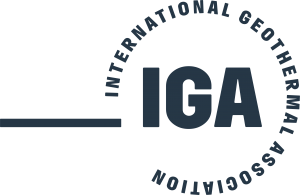The World Geothermal Congress 2015
Luis C.A. Gutiérrez-Negrín, Chairman IGA’s Information Committee
As planned, from April 19 through 24 it was held the World Geothermal Congress 2015 at the Melbourne Convention and Exhibition Center (MCEC), in Melbourne, Australia, with total attendance of more than 1600 persons. The WGC is convened every five years by the IGA, since the first one held in Florence, Italy, in 1995. This time the co-conveners were the national geothermal associations of Australia and New Zealand, under the main sponsorship of the Filipino company Energy Development Corporation (EDC) and with ‘Views From Down Under – Geothermal in Perspective’ as the main theme.
The WGC 2015 included several short pre- and post-congress courses. Four of the five pre-congress workshops were developed in April 18 and 19 in the University of Victoria Melbourne: ‘Geothermal well drilling, completion and testing, ‘Scaling and corrosion in geothermal development’, ‘Reservoir engineering and reservoir management’, and ‘Electricity generation from low-temperature geothermal resources’. The fifth one, ‘Reducing drilling risk’, was financed by the World Bank and was taught in Melbourne on 17-19 April. The only post-congress workshop was in Taupo, New Zealand in April 26-28, and the title was ‘Geothermal policy and implementation – The New Zealand example’.
There were also five field trips –two pre-congress in Australia and three post-congress in New Zealand. As social activities, there was an opening reception in the exhibition area the first day and an official dinner the second day in the fancy Crown Palladium, located a couple of blocks from MCEC. The exhibition room was composed of 60 booths where 43 geothermal companies, research centers, agencies and national associations and governments exhibited their products and services. Among the companies highlighted EDC, EDC, Ormat Technologies, PowerChem, Alstom, Exergy, Nalco, Atlas Copco, Fuji Electric, and Toshiba. New Zealand and Iceland presented national booths with its own companies and centers: Contact Energy, Jacobs New Zealand, Leapfrog, GNS Science, the Geothermal Institute, Mighty River Power among the New Zealanders, and Iceland Drilling, ISOR, Iceland Geothermal, Landsvirkjun, Mannvit and Orkustofnun among the Icelanders. The German Research Centre for Geosciences (GFZ) presented also a wide booth.
The WGC opening session was held in the MCEC plenary room and started with the colorful welcome in native tongue of peoples of New Zealand (Maori from Whakarewarewa, Rotorua) and Australia (Wurundjeri Aboriginal Tribe). The session was moderated by Barry Goldstein, Chairman of the Organizing Committee (OC), and included salutations by Simon Bridges, New Zealand Minister of Energy and Natural Resources, Kylia White, Deputy Secretary of Energy and Earth Resources of the Victoria government, Spence McClintock from Mighty River Power and Juliet Newson, President of IGA. Immediately after there was a keynote session chaired by Roland Horne, chair of the WGC Technical Committee, that was composed of six presentations by Roland, Juliet, Ruggero Bertani (world geothermal power status), John Lund (world geothermal direct uses status), Graeme Beardsmore (Australia country update) and Brian Carey (New Zealand country update).
The technical sessions started after plenaries. A little more than 1300 papers were presented, mostly orally in 20-minutes presentations arranged into 12 parallel sessions developed simultaneously in 12 different rooms of the MCEC. Oral sessions were arranged in the following subjects: Country Updates, Geophysics, Reservoir Engineering, EGS, Environmental and Societal Aspects, Power Generation, Exploration, Geothermal Heat Pumps, Geology, Drilling and Completion, Legal and Regulatory Aspects, Direct Use, Geochemistry, District Heating and Agriculture, Economics and Financing, Sustainability, Production Engineering, Injection Technology, International Collaboration, Resource Assessment, IDDP (International Deep Drilling Project), Software for Geothermal Applications, Case Histories, Health, Tourism and Balneology, Energy Pricing and Policies, Field Management, Corrosion and Scaling, Business Strategies, Heat from Oil Fields, Hydrogeology, Hot Sedimentary Aquifers, Geothermal Education, Minerals Extraction and Processing, Integrated Energy Systems, and Innovation. The top five subjects with more sessions and papers presented orally were:
Subject (# Sessions/ # Papers)
- Reservoir Engineering (16/ 80)
- Geophysics (14/ 70)
- Exploration (13/ 65)
- Geochemistry (12/ 60)
- EGS, Geology, Power Generation, Resource Assessment (10/ ~50)
There were also two sessions for presentation of papers in poster, with 149 papers in the first session (Tuesday) and 121 in the second (Wednesday), for a total of 270 papers presented in poster.
In the closing ceremony, conducted again by Barry Goldstein, it was signed and read the Melbourne Declaration and was introduced Iceland as the country host of the WGC 2020.
Besides the technical and plenary sessions, the WGC 2015 included two panel sessions and several special and side events. Both panel sessions were developed in the plenary room during the mornings of Wednesday April 22 and Friday April 24. The first one was ‘Community and Indigenous Involvement in Geothermal Projects’ and was moderated by Jim Lawless and Masami Nakagawa, while the second was devoted to the International Renewable Energy Alliance (REN Alliance), from which the IGA is one of the five partners and founders, and was moderated by Prof Rosalind Archer.
The side and special events were developed between April 19 and May 2. Among them there was a meeting of the WING (Women in Geothermal) group, an International Geothermal Health and Safety Regulators Forum, a Latin America Forum called by Auckland University students, an Update of Geothermal Energy in Africa, a meeting to present the Geothermal Global Alliance initiative promoted by IRENA, an Introduction to the Code of Practice for Drilling Deep Geothermal Wells (NZS2403), several meetings of representatives of some IEA-GIA annexes, meetings of the IGA’s committees of Resources and Reserves, Program and Planning, and Education, a IGA/UNECE Open Forum on geothermal specifications for the UNFC classification, and a special event to celebrate the 25th anniversary of the IGA foundation. In this latter, the President of IGA delivered recognitions to the eight IGA promoters-founders and to some outstanding members of the early years. Some post-congress events developed in New Zealand were the NZ Geothermal Journey on April 27, the meeting of the Executive Committee of IGA-GIA on April 30 and May 1, and the AGGAT (Above Ground Geothermal and Allied Technologies) Conference on April 30.




